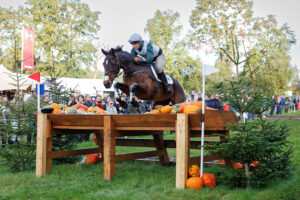Study: Manage Manure to Reduce House Fly Populations
- Topics: Article, Insect Control, Waste & Manure Management
Got flies? No wonder. Horse manure is an attractive home for house flies, which mate and lay eggs in animal feces. And researchers say that a better understanding of how house flies reproduce in manure can lead to better pest management and significantly fewer house flies in your barn and its surroundings—without relying on chemicals.
Not only are flies annoying, but they’re also responsible for the spread of up to 100 human and animal diseases, said Muhammad Binyameen, PhD, assistant professor in the Bahauddin Zakariya University Faculty of Agricultural Sciences & Technology Department of Entomology, in Multan, Pakistan. Furthermore, he said, the common house fly, Musca domestica L., is now officially ranked as the 20th most resistant species to pesticide control. As such, he said horse owners and other livestock owners should take steps to practice better manure management, for their own health and comfort as well as that of their animals and neighbors.
In a recent study, Binyameen and his fellow researchers investigated the attraction and reproductive behavior of house flies in manure from cows, horses, donkeys, and poultry, as well as in the presence of a sugar-mixture control.
They found that the flies appeared most attracted to cow manure—appearing in large numbers hovering around the feces—but interestingly had very little breeding activity there. The greatest amount of breeding activity (quick to mate, quick to lay eggs, and a large egg production) occurred in poultry manure, Binyameen said
Create a free account with TheHorse.com to view this content.
TheHorse.com is home to thousands of free articles about horse health care. In order to access some of our exclusive free content, you must be signed into TheHorse.com.
Start your free account today!
Already have an account?
and continue reading.

Related Articles
Stay on top of the most recent Horse Health news with


















